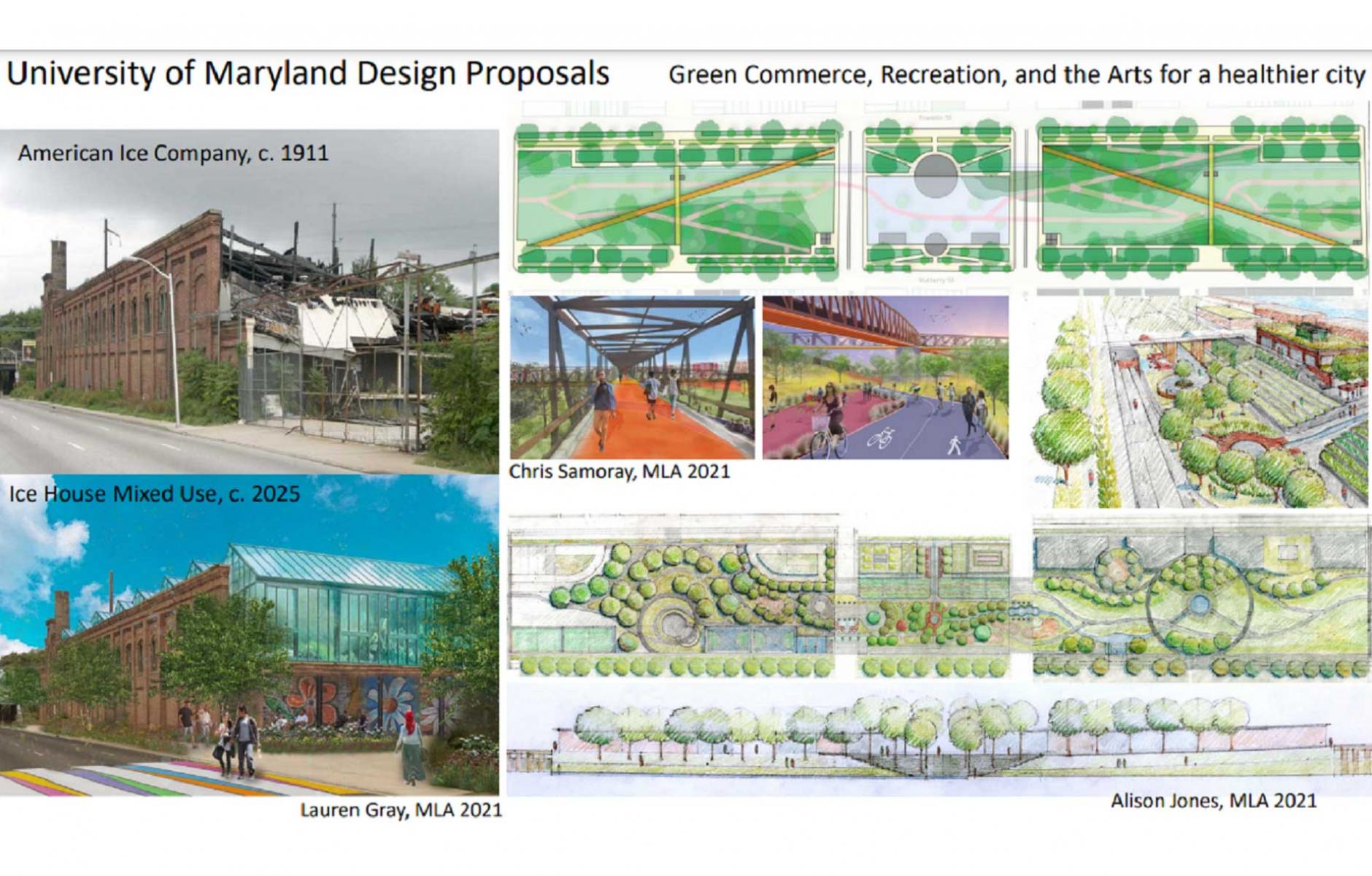
Reconnecting Communities with federal financing
This year’s report is the first to coincide with acknowledgment from the federal government of the inequitable and harmful impacts of urban highway construction. Financing for the first round of funding through the Reconnecting Communities Pilot Program awarded $185 million in grants to 45 projects to construct and plan for transformative community-led solutions.
Featured in the 2023 Freeways Without Futures report are 4 highways that received Reconnecting Communities financing through applications from local and state governments. In all cases, the visions and hard work of local campaigns has helped shape the focus of these grants and build and maintain momentum in the impacted communities.
Interstate 35—Austin, Texas
The Texas Department of Transportation (TxDOT) is planning to rebuild and widen I-35 through Austin, which will only further exacerbate community barriers. Two local campaigns are advocating for highway capping and for rerouting and removal, respectively, as TxDOT continues to push expansion as the solution to addressing this infrastructure that is nearing the end of its lifespan.
The City of Austin’s “Connecting Austin Equitably—Mobility Study” was awarded $1.12 million from the Reconnecting Communities Pilot Program to evaluate transportation, public health, equitable development, and environmental justice outcomes related to the possibility of capping parts of an expanded I-35. One of the local campaigns, Reconnect Austin, has worked for over a decade to advocate for a cap over this major interstate and this hard work is being leveraged with this financing.
The funding for the city to study capping Interstate 35 is a step towards addressing some of the impacts this expansion will have on already burdened communities but as stated by America Walks, “USDOT should leverage the Reconnecting Communities program to discourage state DOTs from literally being able to cover their mistakes in real-time.”
US 40 Expressway—Baltimore, Maryland
Baltimore’s infamous “Highway to Nowhere” was built in the 1970’s and remains both a physical barrier and scar in the community that has struggled with the injustices of segregation, property devaluation, unfair eminent domain, and intrusive highway construction as “urban renewal.”
With the announcement of Reconnecting Communities funding, the Baltimore Department of Planning revisited past organizing efforts and organized a public forum to listen to concerns and gain consensus from a city-initiated effort to apply for a planning grant. The forum provided stakeholders a platform to see and present ideas that have already been developed over the years after previous attempts to address the unequal impacts of US 40 were shelved.
West Baltimore United received $2 million from the Reconnecting Communities Pilot Program to study the possibility of removing, retrofitting, or modifying the impacts caused by the construction of the US 40 Expressway. This planning grant will reconnect historically Black communities by addressing inequities and improving safety, access, opportunity, and innovation in West Baltimore.
Interstate 980—Oakland, California
As I-980 approaches the end of its designed life span, West Oakland residents have an opportunity to shape the future of their community as the city considers highway removal. From 2014-2018, Connect OAKLAND worked with the community, the city, and local transit agencies to envision a future for West Oakland.
Since this initial organizing by Connect OAKLAND, the City of Oakland has taken the lead with Caltrans, in collaboration with the city, issuing a Request for Proposals for a Vision 980 study to explore alternatives for reconnecting communities along the corridor with an expanded focus on community integration and environmental justice to deliver more equitable outcomes.
Vision 980 Study Phase 2—Feasibility Study received $680,000 from US DOT's Reconnecting Communities Pilot Program grants to explore alternatives for reconnecting communities along the corridor with an expanded focus on community integration and environmental justice. The plan will build on existing work, including the activities of Connect OAKLAND and other planning studies.
State Route 99—Seattle, Washington
State Route 99 was built in the 1950s and 1960s to divide and displace, rather than to serve the South Park community. Today, community residents contend with a dark underpass containing a narrow sidewalk bordered by a constant stream of semi-trucks—the only on-grade crossing point throughout the entire 1.5 mile stretch of highway that divides the South Park in two.
Reconnect South Park is a community-led effort to rethink Highway 99 through the neighborhood. This volunteer-led effort received buy-in from local public officials and $600,000 was allocated from the state legislature to the City of Seattle for a two-part technical feasibility and community visioning process to study potential changes to the highway.
The City of Seattle and Reconnect South Park applied for and received $1.6 million from US DOT's Reconnecting Communities Pilot Program to fund more in-depth planning studies and support the creation of an Equitable Development Plan that will put forth community-informed anti-displacement strategies to be implemented alongside any changes to the highway. The technical studies will examine multiple potential futures, including a full removal of the SR-99 through South Park.
For each of these nominated highways, support from local and state government led to financing from the federal government. However, these cities would struggle to have a vision of what to study and need more help accessing community input without the years of work put in by local campaigns to make their advocacy for reconnected communities a reality.
To learn more about these and other highways in Freeways Without Futures 2023, download the report here.




